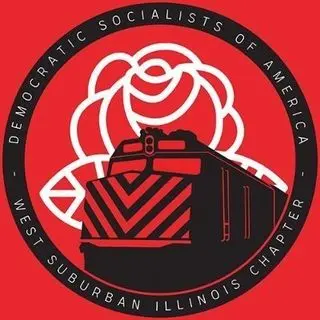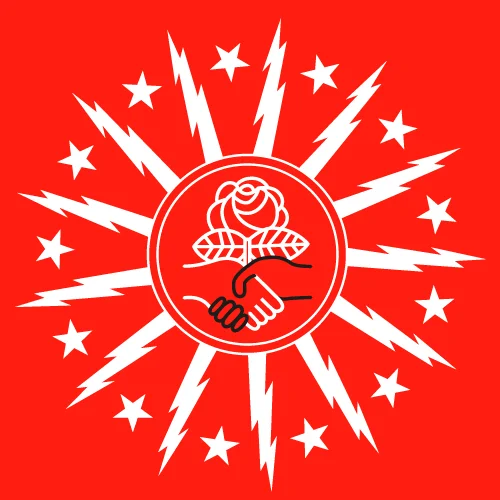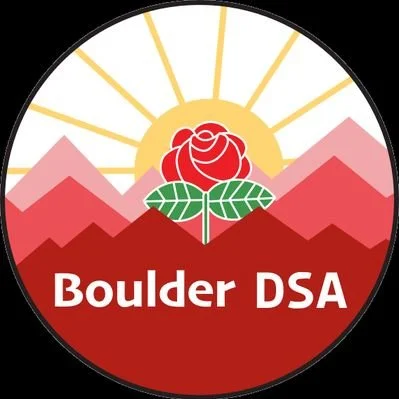

Why Dr. Debbie Almontaser finds being called a "moderate Muslim" offensive


Medicare for All Strategy Session

Join WSDSA and CDSA for a Medicare for all Strategy Session with Tim Faust on October 14th at 7pm!


"Capitalism has a spiritual formation plan" —Rev. Andrew Wilkes


Our Mission
Buffalo DSA is a member dues funded and member-directed not-for-profit in the State of New York. Democratic Socialists believe that both the economy and society should be run democratically—to meet public needs, not to make profits for a few. To achieve a more just society, many structures of our government and economy must be radically transformed through greater economic and social democracy so that ordinary Americans can participate in the many decisions that affect our lives.


"I was living under two occupations” —Rev. Khader El-Yateem


"I'm a socialist because Jesus tells me to be." —Rev. Ann Kansfield


Interfaith Worker Justice – A Conversation with Laura Barrett


A Conversation with Professor Gary Dorrien


Striking Miners Massacred in Ludlow
The Ludlow Massacre was an attack by the Colorado National Guard and Colorado Fuel & Iron Company camp guards on a tent colony of 1,200 striking coal miners and their families at Ludlow, Colorado, on April 20, 1914. About two dozen people, including miners’ wives and children, were killed. The chief owner of the mine, John D. Rockefeller, Jr., was widely criticized for the incident.

The massacre, the seminal event in the Colorado Coalfield War, resulted in the violent deaths of between 19 and 26 people; reported death tolls vary but include two women and eleven children, asphyxiated and burned to death under a single tent. The deaths occurred after a daylong fight between militia and camp guards against striking workers. Ludlow was the deadliest single incident in the southern Colorado Coal Strike, which lasted from September 1913 through December 1914. The strike was organized by the United Mine Workers of America against coal mining companies in Colorado. The three largest companies involved were the Rockefeller family-owned Colorado Fuel & Iron Company, the Rocky Mountain Fuel Company, and the Victor-American Fuel Company.
In retaliation for Ludlow, the miners armed themselves and attacked dozens of mines over the next ten days, destroying property and engaging in several skirmishes with the Colorado National Guard along a 40-mile front from Trinidad to Walsenburg. The entire strike would cost between 69 and 199 lives. Thomas G. Andrews described it as the “deadliest strike in the history of the United States”, commonly referred to as the Colorado Coalfield War.
The Ludlow Massacre was a watershed moment in American labor relations. Historian Howard Zinn described the Ludlow Massacre as “the culminating act of perhaps the most violent struggle between corporate power and laboring men in American history”. Congress responded to public outcry by directing the House Committee on Mines and Mining to investigate the incident. Its report, published in 1915, was influential in promoting child labor laws and an eight-hour work day.
The Ludlow site, 18 miles northwest of Trinidad, Colorado, is now a ghost town. The massacre site is owned by the United Mine Workers of America, which erected a granite monument in memory of the miners and their families who died that day. The Ludlow Tent Colony Site was designated a National Historic Landmark on January 16, 2009, and dedicated on June 28, 2009. Modern archeological investigation largely supports the strikers’ reports of the event.


Publication of The Communist Manifesto
The Communist Manifesto (originally Manifesto of the Communist Party) is an 1848 political pamphlet by German philosophers Karl Marx and Friedrich Engels. Commissioned by the Communist League and originally published in London (in German as Manifest der Kommunistischen Partei) just as the revolutions of 1848 began to erupt, the Manifesto was later recognised as one of the world’s most influential political documents. It presents an analytical approach to the class struggle (historical and then-present) and the problems of capitalism and the capitalist mode of production, rather than a prediction of communism’s potential future forms.
The Communist Manifesto summarises Marx and Engels’ theories about the nature of society and politics, that in their own words, “The history of all hitherto existing society is the history of class struggles”. It also briefly features their ideas for how the capitalist society of the time would eventually be replaced by socialism.
In 2013, The Communist Manifesto was registered to UNESCO’s Memory of the World Programme with the Capital, Volume I.